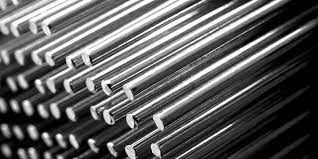Tool steel bars have become indispensable in various industries due to their exceptional properties and diverse applications. These bars, made from high-quality steel alloys, offer robustness, durability, and heat resistance, making them crucial elements in manufacturing processes worldwide.
Introduction to Tool Steel Bar

Tool steel bars are specialized steel materials developed to withstand extreme conditions in machining, cutting, and shaping applications. Initially introduced in the late 19th century, these bars have undergone continuous refinement to meet evolving industrial demands.
Properties of Tool Steel Bars
Strength and Durability
Tool steel bars are renowned for their exceptional strength, allowing them to endure high-stress environments without compromising structural integrity. This durability ensures prolonged use without wear or breakage.
Resistance to Heat and Wear
One of the primary attributes of tool steel bars is their remarkable resistance to heat and wear. This property makes them ideal for applications requiring high temperatures and prolonged usage, such as in metalworking and fabrication.
Types of Tool Steel Bars
Tool steel bars encompass various types, each tailored to specific industrial requirements:
High-Speed Steel (HSS)
HSS tool steel bars exhibit exceptional hardness, enabling them to retain their cutting edge even at high temperatures. Their ability to withstand high-speed operations makes them invaluable in machining applications.
Alloy Steel
Alloy steel bars are crafted by combining different metallic elements, enhancing specific properties like toughness, strength, and corrosion resistance. This versatility makes them suitable for a wide range of applications.
Carbon Steel
Carbon steel bars are known for their high carbon content, providing excellent hardness and strength. Their affordability and adaptability make them prevalent in numerous industries.
Applications of Tool Steel Bars
Tool steel bars find extensive use across various sectors, including:
- Manufacturing Industry: Tool steel bars are vital components in manufacturing machinery, molds, and dies due to their resilience and precision.
- Construction Sector: They play a crucial role in construction tools, reinforcing bars, and other structural elements due to their durability and strength.
- Automotive Industry: Tool steel bars are integral in producing components for engines, transmission systems, and vehicle chassis owing to their toughness and wear resistance.
| Industry/Application | Specific Use of Tool Steel Bars |
|---|---|
| Manufacturing | Essential for creating precision machinery, molds, and dies |
| Construction | Reinforcing bars, structural elements, and heavy-duty tools |
| Automotive | Engine components, transmission systems, chassis parts |
| Aerospace | Critical components in aircraft manufacturing and assembly |
| Toolmaking | Cutting tools, drill bits, milling cutters, and tool accessories |
| Energy | Components for power generation, oil and gas equipment |
| Medical Devices | Surgical instruments, cutting tools for medical equipment |
| Electronics | Manufacturing of circuit boards, precision electronic components |
| Agriculture | Equipment parts, agricultural machinery components |
| Mining | Drill bits, rock-cutting tools, mining equipment components |
Advantages and Disadvantages of Using Tool Steel Bars
Strengths in Various Applications
The robustness and reliability of tool steel bars ensure high performance in demanding environments, contributing to increased productivity and efficiency.
Limitations and Considerations
However, their high cost and susceptibility to corrosion in certain conditions pose challenges, requiring proper maintenance and handling protocols.
Choosing the Right Tool Steel Bar
Selecting the appropriate tool steel bar involves considering several factors, including the specific application, required hardness, and environmental conditions. Matching the material to the intended use ensures optimal performance and longevity.
Maintenance and Care Tips for Tool Steel Bars

Proper storage conditions and regular maintenance are crucial to preserving the quality of tool steel bars. Storing them in controlled environments, handling them with care, and periodic maintenance routines extend their lifespan and effectiveness.
Innovation and Future Trends in Tool Steel Bars
Continued research and development in metallurgy and manufacturing technologies are driving innovations in tool steel bars. Advancements aim to enhance their properties, expand applications, and optimize production processes.
In conclusion, the versatile nature and remarkable properties of tool steel bars make them indispensable in various industries. Understanding their characteristics, selecting the right type, and implementing proper maintenance practices are pivotal in maximizing their benefits and longevity.
FAQs:
What makes tool steel bars unique?
Tool steel bars possess exceptional strength, durability, and resistance to heat and wear, distinguishing them from other materials.
Are there any drawbacks to using tool steel bars?
While highly effective, tool steel bars can be costly and susceptible to corrosion under certain conditions, necessitating proper care.
How can one choose the right tool steel bar?
Considerations include the specific application, required hardness, and environmental factors to ensure optimal performance.
What industries benefit most from tool steel bars?
Manufacturing, construction, and automotive industries extensively utilize tool steel bars due to their strength and reliability.
What’s the future of tool steel bar development?
Ongoing advancements aim to further enhance properties, expand applications, and optimize production processes for tool steel bars.

